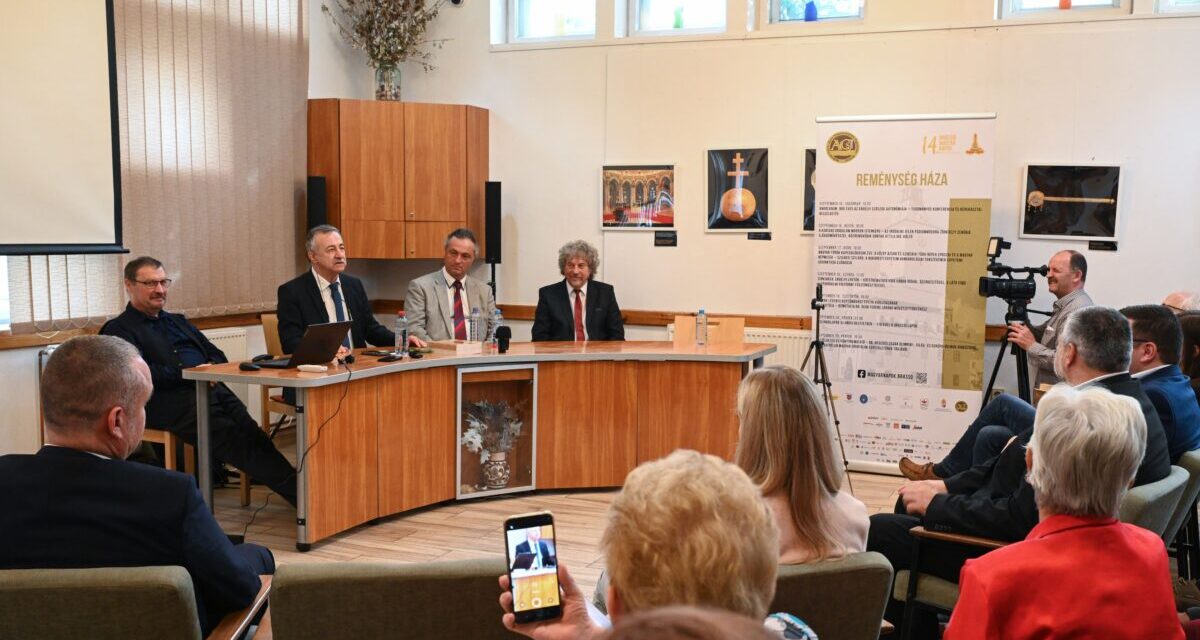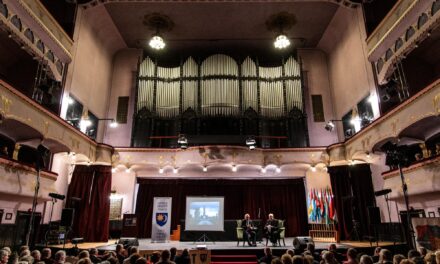Even today's Europe can consider the document as a model.
Andreanum, which is 800 years old this year, is a model in Europe and a part of Hungarian history, which contributed to the development of the Saxon community in Transylvania - emphasized Ministerial Commissioner Ferenc Kalmár, who participated in a conference on the topic in Brasov on Sunday.
The ministerial commissioner took part in the conference Andreanum - 800 years of autonomy of the Transylvanian Saxons in the Transylvanian city, which was organized as part of the 14th Hungarian Days in Brasov, which started on Sunday. In a conversation moderated by Mihály Bencze, a mathematician and teacher from Brasov, György Szabados, director of the László Gyula Research Center, explained the historical background, while Miklós Bakk, a Transylvanian political scientist and university teacher, drew attention to the current readings of Andreanum.
The politician born in Brasov recalled: II. King András issued the Andreanum in 1224, which ensured the self-determination of the Transylvanian Saxons, which was later confirmed by Róbert Károly and King Matthias.
Ferenc Kalmár said: he drew attention to it at the conference, and he also spoke at the evening opening gala of Hungarian Days, that the Andreanum is a document of great importance, a part of Hungarian history.
"It is important in the life of Brasó and in the life of all the Saxon settlements in Transylvania, it was the basis for their establishment," he declared, reminding that, together with Szeben, Brasó were the two most important and richest cities of the Saxons.
He explained: Andreanum ensured the economic and cultural prosperity of the Transylvanian Saxon community, that it was able to preserve its identity for 800 years, and was able to create such cultural values as the Black Church in Brasov, the easternmost Gothic church in Europe.
He expressed his regret that although the Romanian Government's Office of Inter-Ethnic Relations organized a series of events in September that included several stops - former Saxon towns in Transylvania and Düsseldorf - at which Andreanum was recalled, it avoided Brasov and the Hungarian position could not be presented there, even though the document was part of Hungarian history. The Brasov conference was organized to counterbalance this, he said.
"The Andreanum is a model in Europe, since the fact that a community was able to survive and maintain its identity for almost 800 years on the basis of this document (...) shows the importance and power of the document. Even today's Europe can consider this as a model," said the ministerial commissioner. He recalled: the Transylvanian Saxons remained in their homeland for centuries, until the Ceausescu regime sold them to Germany.
He emphasized: Andreanum is a model in Europe, and if it worked in Transylvania for the Saxon community, it would also work for the Hungarian community, but for that Romania would have to recognize collective rights. Hungary has all the support to preserve the identity of Transylvanian Hungarians, as every Hungarian matters, he stated.
He underlined: he can also say to the Hungarians of Brasó: the Hungarian state supports the Hungarian communities across the border through the national policy, and also gives all the support to the Hungarians of Brasó and Barcáság so that they can preserve their identity and resist assimilation.
The 14th Hungarian Days in Brasov began on Sunday morning with a Reformed service, and in the evening, the opening gala was held in the dramatic theater under the title Our heritage in dance - 75 years old, the Búzavirág Folk Dance Ensemble, with Pál István Szalonna and his Band as the guest of honor. More than 50 programs are waiting for Hungarians in the area at the largest Hungarian cultural festival of the southern Transylvanian dispersion, the series of events will end next Sunday evening.
MTI
Cover image: Ferenc Kalmár, Ministerial Special Envoy (b2) responsible for the development of Hungary's neighborhood policy of the Ministry of Foreign Affairs and Trade, gives a speech at the conference Andreanum - 800 years of the autonomy of the Transylvanian Saxons, on the opening day of the 14th Hungarian Days in Brasov on September 15, 2024.
MTI/Kátai Edit












